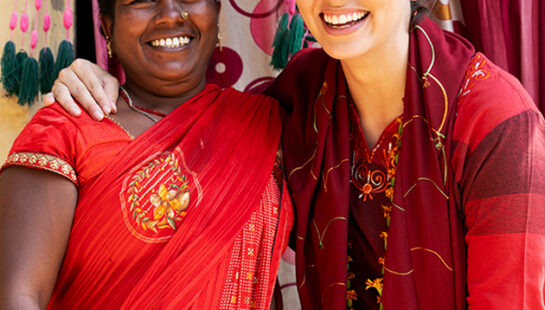A lot is made of Jesus spending time with the poor, the outcast, the unlovely and the unloved. Friend of sinners, they called him. A drunkard and a glutton too (Matt 11:19). No matter what kind of sinner you were, Jesus had time to share a meal with you.
This gives us all hope, don’t you think? No matter who we are, Jesus would eat fish and chips with anyone—particularly people on the outside of community life.
When Simon, who was a Pharisee, invited Jesus to his place for a meal in Luke 7:36-50, Jesus graciously accepted. I suspect Simon respected Jesus and wanted to get to know him, so he did what most of us would do: invited him home for meal and a chat.
Imagine Simon’s surprise when an uninvited ‘known’ woman of the town—an outcast—gate crashed the party. As she stood behind Jesus, weeping, she washed his feet with her tears and dried them with her hair. Opening an expensive jar of perfume, she anointed and repeatedly kissed his feet.
Having judged the woman the moment she entered the house, Simon began to question Jesus, who did nothing but accept the woman’s actions. In truth, most of us have probably drawn the conclusion that this woman was in prostitution, even though Luke doesn’t specify. Maybe Simon thought the woman kissing Jesus’ feet was seductive?
It’s too easy to form conclusions about people we don’t know.
A Story With A Question
Jesus’ response to Simon is to tell him a story. A money lender had two debtors; one owed 500 denarii, the other just 50 denarii. Both couldn’t pay him back, so the money lender forgave the both of them. He released them from their debts. ‘Simon’, said Jesus, ‘which one of the debtors was more grateful?’ ‘I suppose the one who was forgiven the greater debt.’ ‘You’re right,’ Jesus said.
Do You See This Woman
I love the way Luke narrates this next bit. Turning to the woman, but speaking to Simon, Jesus said, ‘do you see this woman? When I came to your house; you gave me no water to wash my feet, yet she has washed my feet with her tears and dried them with her hair. You gave me no brotherly kiss and yet she hasn’t stopped kissing my feet. You didn’t anoint my head with oil, and she has anointed my feet with perfume. How impressive is that?’ ‘Therefore’, Jesus continued, ‘her sins—and yes, they are many—have already been forgiven. This is the reason for her great love. When you’ve been forgiven a little, you tend to love, just a little too.
At this point, I imagine Jesus turned to the woman and gave her his full attention to reaffirm what has already been proclaimed, ‘your sins are forgiven.’
This gatecrashing outcast won hosting rights over Simon. Simon, who thought he was the host, has been made to feel like a stranger in his own home. Hospitality comes best from grateful hearts.
Hospitality Where Least Expected
Personally, having lived in a red-light community in India, I’ve experienced this kind of hospitality.
Tea (char) from a cheap clay cup is the best tasting of all when you’re sitting in a tiny brothel room with a woman who has experienced the kind of forgiveness Jesus brings. A cheap packet of biscuits tastes better than the most expensive cookies when you are hosted by a ‘500 denarii forgiven’ woman.
Tea (char) from a cheap clay cup is the best tasting of all when you’re sitting in a tiny brothel room with a woman who has experienced the kind of forgiveness Jesus brings.
I’ve got so much to learn about hospitality, and I hope to learn it from others who are far more grateful than I am. Perhaps some of their hospitality will rub off on me.
Sadly, the others sitting at Simon’s table couldn’t get past Jesus’ right to forgive sins. Not losing focus, Jesus turns to his host, ‘your faith has saved you; go in peace.’
It’s too easy to get caught up in rules and regulations and miss the person or people. I’m going to stick with the key question Jesus asks Simon, ‘Do you see this woman?’ I hope she will always be welcome to gatecrash a party at my place. Perhaps I’ll introduce her to the other guests as the host. What about you?




 Hannah Moeda,
Hannah Moeda,